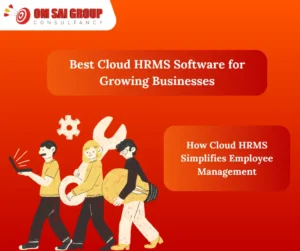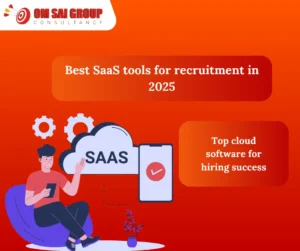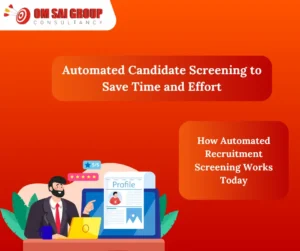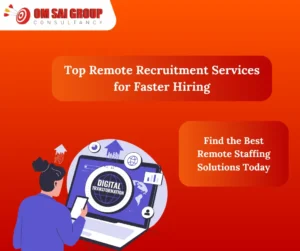7 Benefits of Blockchain in Recruitment You Should Know

Revolutionizing the Talent Acquisition Landscape with Distributed Trust How Blockchain Technology Is Reshaping Hiring Standards in the Modern Era In the talent acquisition arena, where transparency, authenticity, and efficiency take center stage, a paradigm-shifting force is gaining traction—Blockchain recruitment process. The traditional recruitment processes, which are marred by inefficiencies and loopholes in candidate validation, are being challenged at their very root by a new digital paradigm. Placement Service This paradigm doesn’t just hold out the promise of innovation—it offers irreversible change. Blockchain in recruitment The recruitment sector, long under fire for its disorganized workflows and reliance on old verification systems, is on the brink of a revolution. Hiring decisions that used to take weeks—résumé cross-checking, reference validation, credential verification—now can be made in a fraction of that time, with higher assurance. Blockchain in recruitment The catalyst? Blockchain recruitment. Those were the good old days of depending solely on human background checks and isolated HR databases. Today’s employers, recruitment consultants, and hiring managers have to adopt technology that promises integrity and real-time authentication. That is where the role of blockchain in recruitment kicks in, and the advantages are anything but hypothetical—they are concrete, quantifiable, and strategically crucial. 1. Immutable Candidate Records: Authenticity You Can Trust Envision being able to access a candidate’s educational qualifications, work history, and performance metrics all safely secured on a decentralized ledger. Blockchain in recruitment Once authenticated and uploaded, these details are immutable—a key characteristic of blockchain technology. This means that data can’t be tampered with or manipulated at any stage in the recruitment process. From forged degrees to manipulated work history, HR departments have been plagued with fraud for decades. Blockchain recruitment pdf reports acknowledge that blockchain obliterates these issues by providing a single source of authentic truth. Each entry is encrypted, timestamped, and cryptographically secure, creating a trust-based hiring environment. Blockchain in recruitment 2. Reduced Time-to-Hire: From Weeks to Days Traditional recruitment cycles can drag on—especially for roles requiring detailed vetting. Blockchain in recruitment Blockchain slashes the inefficiency by offering instant verification of credentials. No more waiting for universities to confirm graduation dates or ex-employers to respond to reference emails. Rather, recruitment platforms that have integrated blockchain technology are able to verify candidate information in real-time. The outcome? Lower time-to-hire, lower operating expense, and the competitive advantage of acquiring the best talent before rivals get a chance to do so. This is an ideal demonstration of the application of blockchain technology in recruitment—acceleration without sacrificing precision. Blockchain in recruitment 3. Enhanced Data Security and Privacy Compliance HR system data breaches are becoming commonplace, leading to sensitive candidate and employee information falling into the hands of attackers. Blockchain introduces an end-to-end encryption paradigm with personal data not being stored in one place but scattered across the blockchain network. Blockchain in recruitment Candidates own their data, deciding who can view it and when. Blockchain in recruitment It’s consistent with international data protection legislation such as GDPR and builds on candidate trust in the system. Data security is a native feature of blockchain recruitment, not an afterthought. Staffing solutions 4. Decentralized Verification for Global Hiring With a globalized workforce, authenticating foreign qualifications and work histories is logistical nightmares. Blockchain goes across borders by providing decentralized authentication that can be accessed and relied upon everywhere. Blockchain in recruitment Irrespective of hiring from New York, Nairobi, or New Delhi, businesses can leverage blockchain to obtain verified, borderless candidates’ profiles. Blockchain in recruitment This is especially crucial for industries such as IT, medicine, and finance, where competence assurance is not an option. Significance of blockchain recruitment becomes apparent when cross-border talent procurement is no longer hindered by administrative red tape. 5. Streamlined Recruitment Process through Smart Contracts Smart contracts are self-executing contracts programmed into the blockchain. In hiring, they can execute anything from sending offer letters to navigating onboarding paperwork and benefits. Blockchain in recruitment If conditions are fulfilled (e.g., background check completion or joining confirmation), the smart contract will then instantly initiate the subsequent step of the hiring process. No more need for manual reminders or constant re-verifications. Such precision-based automation is what the blockchain plays as a recruitment process accelerator. Blockchain in recruitment 6. Transparent Recruitment Audits and Fairness Bias, opaque hiring practices, and varied decision-making have plagued recruitment for years. Blockchain in recruitment Blockchain brings traceability to the equation, so that every move, from job advert to last choice, can be logged on an open, tamper-proof ledger. manpower Service This level of traceability helps ensure compliance, facilitates fair hiring, and gives HR teams a clear audit trail. Applicants also gain clarity on where they are in the process. Blockchain recruitment pdf whitepapers point to this use case as critical to ethical and fair hiring practices. Blockchain in recruitment 7. Cost Efficiency Through Process Optimization Recruitment costs money. From advertising to screening, onboarding, and background checks, the total expenses are mind-boggling. Blockchain in recruitment Blockchain ensures cost-effectiveness by eliminating intermediaries, paperwork, and administrative overhead. Through direct access to vetted candidate information, blockchain allows recruitment agencies and HR functions to invest less time in vetting and more in planning. The ripple effect? A more streamlined, faster, and intelligent hiring function. Blockchain in recruitment Conclusion: The Inevitable Integration of Blockchain in Hiring What email has done to communication, blockchain is doing to verification. The shift from paper-based recruitment to digital-led hiring is no longer a choice—it’s inevitable. The reason blockchain matters in recruitment is that it can provide secure, verifiable, and efficient hiring solutions that are flexible to suit the needs of today’s workforce. Blockchain in recruitment Recruiters who embrace blockchain today position themselves as pioneers of a transparent, future-ready ecosystem. Blockchain in recruitment Those who delay adoption risk being left behind in an industry that’s rapidly evolving. In short, blockchain recruitment process is not a buzzword—it is a model ready to revolutionize talent acquisition in industries. To anyone committed to rethinking their recruitment strategy, learning and taking advantage of the role that blockchain plays in recruitment is no longer a matter of choice; it’s essential. It’s not about faster hiring—it’s about smarter, more equitable, and future-proof hiring. Adapt to









